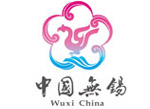|
Calls
Paper Submission
Organization
Program
Venue
Previous Conferences
|
IoT Architecture Special Session
The IoT-A special session is scheduled on Oct.26, 14:00-15:15. Moderation: Rob van Kranenburg (IoT-A SC)
While a fully functioning Internet of Things is still to come,
Speakers: 13:45-13:55 Coordinator of IoT-A Sebastian Lange 13:55-14:10 Technical Coordinator of IoT-A Alex Bassi 14:10-14:25 the IoT architecture for Agriculture and food safety in 14:25-15:00 Breakout groups on three key issues: a) Naming and addressing b) Energy efficiency of the infrastructure itself c) Balance global - regional, governance issues: what model?
The format of the breakout session is based on “Notes on the Design of Participatory Systems - for the City or the Planet” from Usman Haque. Step 1: Identify the dilemma in small groups of five participants Step 2: Identify the stakeholders. Step 3: List incentives for stakeholders to act or change. Step 4: What is the evidence that the acts or changes have occurred? Step 5: This is the most important step: Create a tool to help convince end users that the dilemma is real, the incentives are right, and the tools for change need to be adopted.
Speaker: Dr Sebastian Lange, Coordinator of IoT-A Representative, VDI/VDE-IT Dr. Sebastian Lange holds a degree in physics from the University of Heidelberg, Germany. After his Ph.D. at the European Molecular Biology Laboratory in Heidelberg, Germany he has been working as management consultant with Droege & Comp with a focus on business-process and knowledge management. Dr. Lange has been working with VDI/VDE-IT since 2006 and is currently Senior Consultant in the department Innovation Europe. Dr. Lange had a leading role in establishing the European Technology Platform on Smart Systems Integration (EPoSS) where he was responsible for the management of the European Technology Platform’s Office as deputy secretary general and held conceptual and advisory functions. Furthermore, he has been involved in the management of several EU FP projects and has is strongly committed to establishing and evolving the topic of the Internet of Things (IoT) on a European level in recent years. He is member of the Future Internet X-ETP working group which was strongly involved in gearing up efforts towards a Future Internet Public Private Partnership as representative of EPoSS. In a joint effort of establishing the FI Strategic Research Agenda Dr. Lange was pushing the topic of the Internet of Things and M With respect to IoT, Dr. Lange is currently coordinator of the large scale integrated project IoT-A (Internet of Things – Architecture) which federates 20 European large industrial and academic partners in their effort on establishing a common and ubiquitously applicable architecture for the future Internet of Things. On a strategic level, he is also strongly involved in the current process of setting up the Internet of Things Initiative (IoT-i). Recently he has been appointed as official member of the IoT Expert Group by the European Commission.
Speaker: Alessandro Bassi, Technical Coordinator of IoT-A Despite being tempted by other disciplines, Alex decided to explore the esoteric world of computer science, mainly because of his tension between creativity and mathematical rigour. He enjoyed his stay in
Speaker: Lirong Zheng, See bio at “Biography of Organizing Committee”. Moderation: Rob van Kranenburg Rob van Kranenburg is a teacher and a writer. He wrote The Internet of Things. A critique of ambient technology and the all-seeing network of RFID, Network Notebooks 02, Institute of Network Cultures. He is co-founder of bricolabs and the Founder of Council. Together with Christian Nold he recently published Situated Technologies Pamphlets 8: The Internet of People for a Post-Oil World . He ranks nr 6 on the top 100 IOT thinkers list of Postscapes He is a member of the IOT EG of the European Commission, co-founding Member of Internet of People (IoP) and Chair of the Working Group Society of the IOT Forum. As Stakeholder coordinator for IoT-A, the largest EU IP on Internet of Things Architecture, he hosts an Open Community. If you want to know more about that, contact him at kranenbu@xs4all.nl
Important Dates
ORGANIZED BY:
SUPPORTED BY:
|
CONFERENCE SECRETARIAT

Copyright © IoT 2012 Organizing Committee. All rights reserved. 苏ICP备11037433号

















